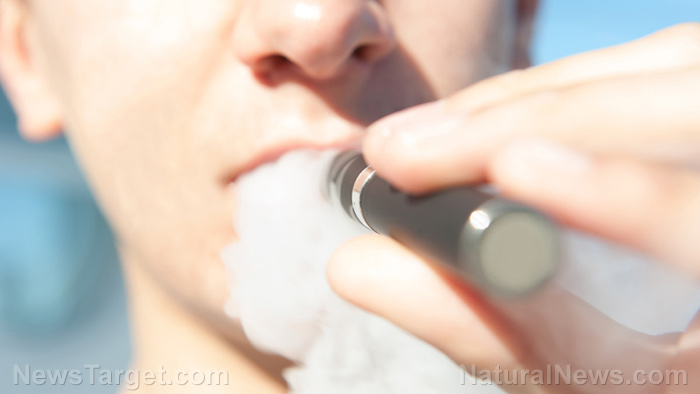Mouthwashes contain deadly chemicals linked to HEART problems, CANCER, study finds
09/27/2023 / By Ethan Huff

New research out of Turkey has found that many consumer mouthwash products currently on the market are loaded with deadly chemicals that are linked to cardiovascular disease, cancer, and more.
Turkish researchers looked at 45 mouthwash formulas used by 17 different commercial mouthwash brands sold at Istanbul’s five largest chain stores – many of these brands and formulas are also used in mouthwash products in the United States, by the way.
Depending on the ingredient ratios and concentrations, some of the oral hygiene products with similar-looking labels were found to be more toxic than others, and more likely to cause the potentially life-threatening health conditions outlined in the study.
Side effects of using these toxic mouthwash products were found to range from mild to severe. Some caused minor skin irritation while others caused users to develop headaches. In a worst-case scenario, using a toxic mouthwash product could cause you to get so sick that you die.
The study determined the following concerning the 45 mouthwash formulas tested:
1) Glycerin, associated with kidney and liver deterioration, was found in 31, or more than 68 percent, of tested mouthwashes.
2) Sodium saccharin, an artificial sweetener known to cause cancer, was found in 29, or more than 64 percent, of tested mouthwashes.
3) Propylene glycol, a chemical linked to organ failure when consumed in larger amounts, was found in 28, or about 62 percent, of tested mouthwashes.
(Related: Looking to keep your mouth clean naturally? Check out these medicinal plants that have been scientifically shown to help support optimal oral health.)
More than 15 percent of tested mouthwashes contain a chemical that causes TOOTH DECAY
Amazingly, a handful of the mouthwashes tested, seven out of 45, or just over 15 percent, were found to contain an antiseptic chemical called chlorhexidine gluconate that causes tooth decay, which kind of defeats the purpose of a mouthwash that supposedly supports oral health.
Other questionable ingredients in the mouthwash formulas tested include cetylpyridinium chloride, a plaque-reducing agent, and acid orange 7 dye, both of which can discolor and stain teeth.
“The limited array of mouthwashes found on store shelves poses a concern for both oral and public health,” the study authors wrote in their paper, which was published in the International Dental Journal – you can access the full study for free at ScienceDirect.com.
“Furthermore, the intricate composition of these products, consisting of numerous ingredients with the potential for adverse effects, warrants serious attention.”
Beware of conventional consumer toothpaste products as well. A recent study published in the Bosnian Journal of Basic Medical Sciences found that most mouthwashes contain the same types of chemicals as most toothpaste products currently on the consumer market.
Some of the overlapping chemicals include:
• Abrasive chemicals that removes substances from teeth without scratching their surfaces
• Binding chemicals that keep the product from becoming too dry
• Solvent chemicals that dissolve all the ingredients to ensure even distribution throughout the final product
• Foaming chemicals that enhance the cleansing effect
• Flavoring and sweetening chemicals that make the product more appealing both in smell and taste
• Coloring chemicals like titanium dioxide that make the product more white
• Preservative chemicals that prevent the growth of unwanted microorganisms
It is important to note that mouthwash, despite containing many of the same things that toothpastes contain, is not enough all on its own to keep teeth clean, according to the American Dental Association (ADA).
It is also noteworthy that there are two different classes of mouthwash: therapeutic and cosmetic. The latter is more for looks while the former is actually designed to control plaque, gingivitis, bad breath, and tooth decay – just be sure to pick a formula that is clean and natural without any harmful chemicals.
The latest news about the hidden dangers lurking in many conventional consumer products can be found at Chemicals.news.
Sources for this article include:
Submit a correction >>
Tagged Under:
antimicrobials, cancer criminals, chemical violence, chemicals, chlorhexidine gluconate, dangerous, dental health, dentistry, heart disease, heart health, International Dental Journal, oral health, products, Propylene glycol, real investigations, research, saccharin, tooth decay, toxic ingredients, toxins
This article may contain statements that reflect the opinion of the author
RECENT NEWS & ARTICLES
COPYRIGHT © 2017 HEART NEWS




















